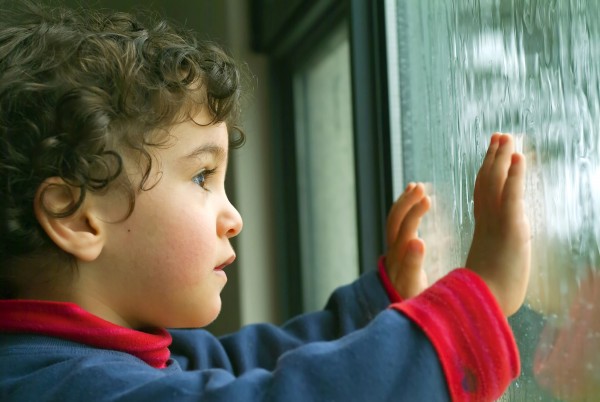
Thunderstorms in spring can be a source of fear and anxiety for young children, as the loud noises, bright flashes of lightning, and unpredictable nature of storms can be scary and overwhelming. It is important for parents and caregivers to provide reassurance and support to help children cope with their fears and feel safe during thunderstorms. In this blog, we will discuss strategies for helping young children through thunderstorms, including preparing them for storms, providing comfort and reassurance, and creating a safe environment during inclement weather.
One way to help young children through thunderstorms is to prepare them in advance and educate them about storms. Explain to children what thunder and lightning are, and reassure them that storms are a natural occurrence. Use age-appropriate language and visuals to help children understand the science behind thunderstorms and alleviate their fears. Teach children safety precautions such as staying indoors during storms, avoiding windows, and unplugging electronic devices.
At Children's Lighthouse, our curriculum for 2-5 year olds includes a daily time for teachers to discuss the weather with children as well as specialized learning activities that support weather awareness. Our Classroom Management guidance practices focus on responsive care and helping children process their emotions.
Following are ways that guardians and caregivers of young children can help lower the “boom” of storm anxieties:
Providing Comfort and Reassurance:
During thunderstorms, children may feel scared and anxious. It is important to not discount their feelings. Instead, acknowledge feelings and use positive reassurance to help children feel safe. Stay calm and composed to model a sense of security for children. Offer physical comfort such as hugs, cuddles, and holding hands to provide a sense of safety and protection. Encourage children to talk about their feelings and fears, and validate their emotions by listening and empathizing with them.
Creating a Safe Environment:
Creating a safe environment for young children during thunderstorms is essential to help them feel secure and protected. Close curtains and blinds to minimize the flashes of lightning and loud sounds of thunder. Create a cozy and comforting space with blankets, stuffed animals, and calming activities such as reading books or listening to soft music. Provide distractions such as playing games or engaging in quiet activities to help children take their minds off the storm.
Engaging in Calming Techniques:
Teach young children calming techniques to help them relax and manage their anxiety during thunderstorms. Deep breathing exercises, visualization, and mindfulness techniques can help children stay calm and grounded during stressful situations. Encourage children to practice these techniques during storms to help them cope with their fears and emotions.
Monitoring Children's Reactions:
It is important to monitor children's reactions during thunderstorms and provide additional support if needed. Some children may experience intense fear or anxiety during storms and may require extra reassurance and comfort. Keep media severe weather alerts turned down to a level that you can monitor without being scary to young eyes and ears. Be attentive to children's cues and respond promptly to their needs to help them feel safe and secure.
In conclusion, helping young children through thunderstorms requires patience, understanding, and empathy. By preparing children for storms, providing comfort and reassurance, creating a safe environment, engaging in calming techniques, and monitoring children's reactions, parents and caregivers can support children in managing their fears and anxieties during inclement weather. By fostering a sense of safety and security, adults can help young children navigate through thunderstorms with resilience and courage.
One way to help young children through thunderstorms is to prepare them in advance and educate them about storms. Explain to children what thunder and lightning are, and reassure them that storms are a natural occurrence. Use age-appropriate language and visuals to help children understand the science behind thunderstorms and alleviate their fears. Teach children safety precautions such as staying indoors during storms, avoiding windows, and unplugging electronic devices.
At Children's Lighthouse, our curriculum for 2-5 year olds includes a daily time for teachers to discuss the weather with children as well as specialized learning activities that support weather awareness. Our Classroom Management guidance practices focus on responsive care and helping children process their emotions.
Following are ways that guardians and caregivers of young children can help lower the “boom” of storm anxieties:
Providing Comfort and Reassurance:
During thunderstorms, children may feel scared and anxious. It is important to not discount their feelings. Instead, acknowledge feelings and use positive reassurance to help children feel safe. Stay calm and composed to model a sense of security for children. Offer physical comfort such as hugs, cuddles, and holding hands to provide a sense of safety and protection. Encourage children to talk about their feelings and fears, and validate their emotions by listening and empathizing with them.
Creating a Safe Environment:
Creating a safe environment for young children during thunderstorms is essential to help them feel secure and protected. Close curtains and blinds to minimize the flashes of lightning and loud sounds of thunder. Create a cozy and comforting space with blankets, stuffed animals, and calming activities such as reading books or listening to soft music. Provide distractions such as playing games or engaging in quiet activities to help children take their minds off the storm.
Engaging in Calming Techniques:
Teach young children calming techniques to help them relax and manage their anxiety during thunderstorms. Deep breathing exercises, visualization, and mindfulness techniques can help children stay calm and grounded during stressful situations. Encourage children to practice these techniques during storms to help them cope with their fears and emotions.
Monitoring Children's Reactions:
It is important to monitor children's reactions during thunderstorms and provide additional support if needed. Some children may experience intense fear or anxiety during storms and may require extra reassurance and comfort. Keep media severe weather alerts turned down to a level that you can monitor without being scary to young eyes and ears. Be attentive to children's cues and respond promptly to their needs to help them feel safe and secure.
In conclusion, helping young children through thunderstorms requires patience, understanding, and empathy. By preparing children for storms, providing comfort and reassurance, creating a safe environment, engaging in calming techniques, and monitoring children's reactions, parents and caregivers can support children in managing their fears and anxieties during inclement weather. By fostering a sense of safety and security, adults can help young children navigate through thunderstorms with resilience and courage.


